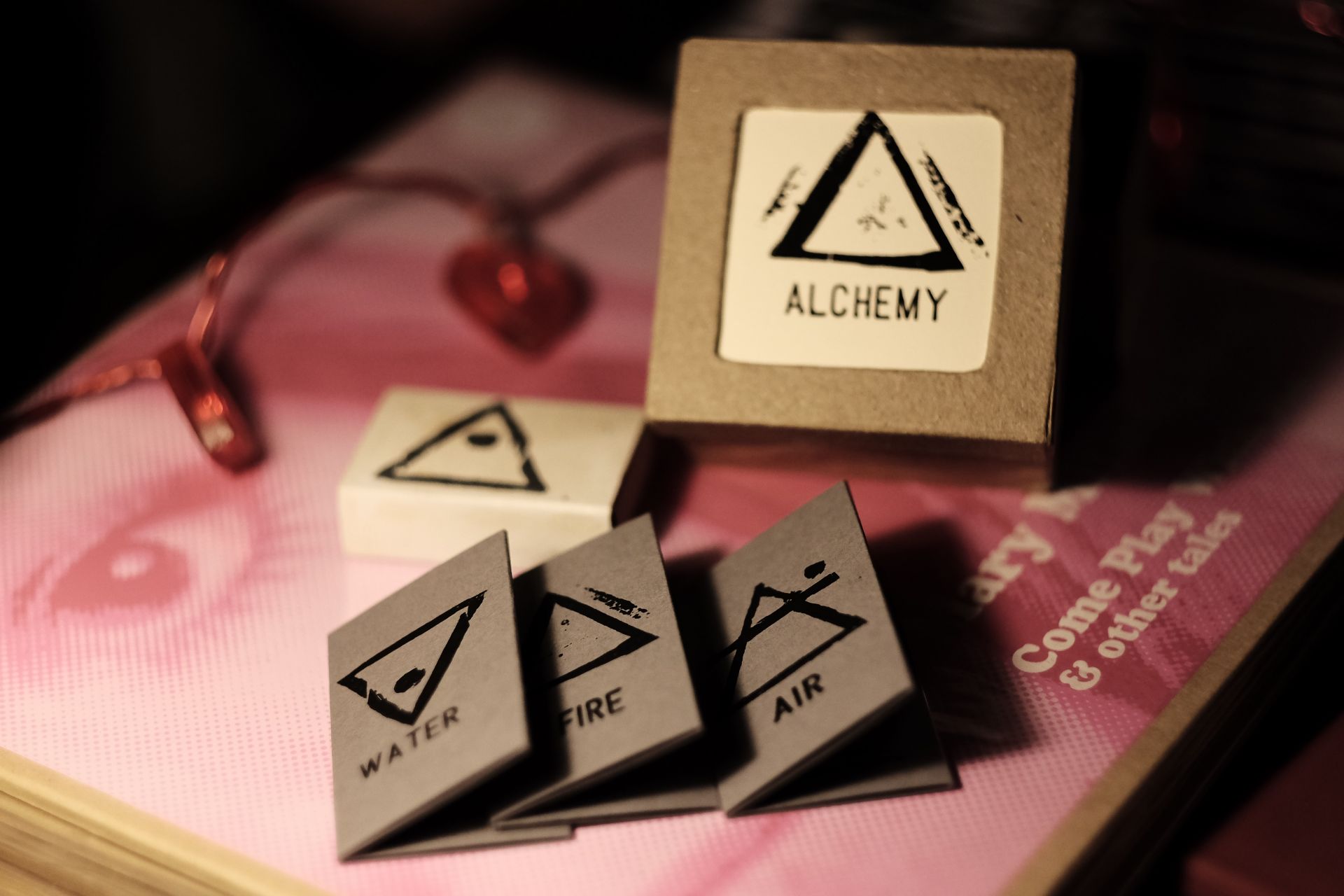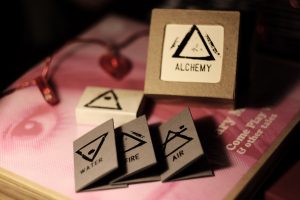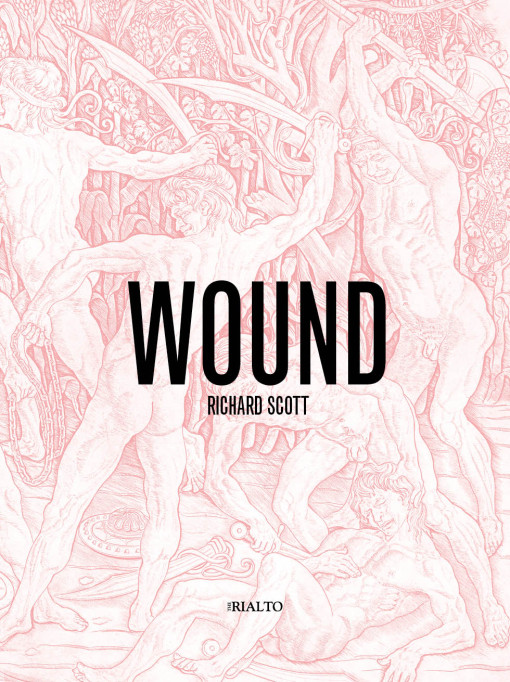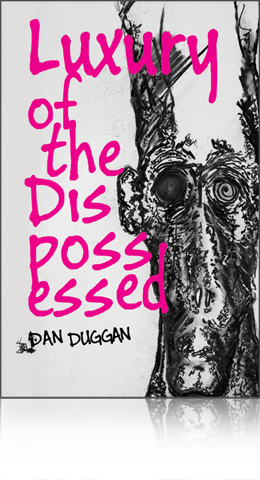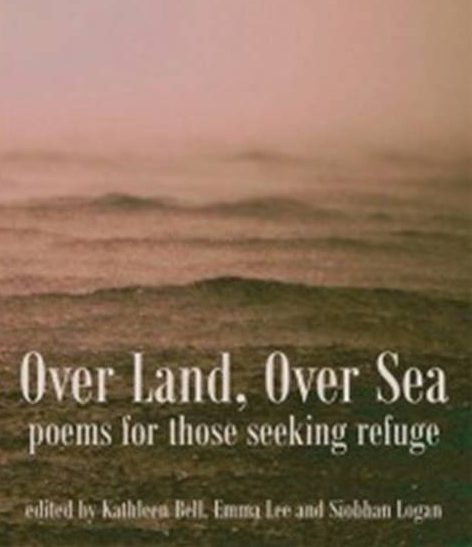Alchemy by Abi Palmer
– Reviewed by Bethany W. Pope –
Abi Palmer’s Alchemy was the winner of this year’s Saboteur Awards’ ‘Wildcard’ category – and with good reason. Though this project is better described as a poetry experience than any sort of collection (there are only four poems included and they are presented as a series of interactive experiments), it is incredibly well-constructed. Alchemy comes in the form of a 2-inch by 2-inch brown cardboard box. There is a window in the lid where the elemental symbol for ‘fire’ peeps through, along with the name of the author. When you open the lid, that symbol is revealed to be printed on the back of a card which lays out the instructions, along with a brief introduction to the concept of the game.
In 1661, Robert Boyle, ‘The Founder of Modern Chemistry’ published a text challenging Aristotle’s theory that the world consists of four elements – Earth, Air, Fire and Water. Boyle argued that this idea lacked empirical evidence: only through rigorous testing and observation of the interactions between elements could we discover the true chemical properties of the universe. In doing so, he helped to form the basis of the Periodic Table we use today.
ALCHEMY offers the chance to play the early modern chemist, experimenting with Aristotle’s four basic elements for yourself.
This introductory pamphlet includes a list of the contents:
4x Element cards
4 Element chambers, containing:
Earth: John Innes No.2 Soil-based potting compost
Water: 4 ink cartridges, 1 drawing pin (you will need a sheet of paper and a glass of water)
Fire: Matchbook (striker on base)
Air: 4 Menthol Chewing Gum Pieces (individually wrapped)
Alchemy was meant to be experienced by more than one person, and I tried to recruit my husband into participating with me, but unfortunately there was quite a lot of UFC on that weekend so I played both sides myself. This limited my experience, somewhat. The suggested roles are The Alchemist, who reads and performs the instructions, and The Observer, who watches, listens, and is acted upon. Following the rules laid out by the game, I shuffled the cards and the chambers, selecting one of each at random (I wound up with the Fire card and the Earth chamber) and I read out the ‘experiment’ for the element of Earth that was written on the back of the card:
EARTH
Rub soil into palm, slowly, using circular motions.
Opening the chamber (shaped like a plain, brown matchbox with the elemental symbol stamped on the cover) I found a small parcel of rich, damp earth carefully wrapped in a fragment of a vintage Fantastic Four comic. Dr Doom (a noted comic-book scientist and sometime-alchemist) glared out at me from the front of the panel. Pouring the soil into my left palm, I opened the Fire card with my right and read:
we might have held our tongues in the darkness
late october clocks go back darkness the
antipodean catcalls long haul flights in the wrong
direction bottom of a clay bowl endingsbut you came light bringer moved your lips…
The experience was interesting; less like science than casting a spell. There is more metaphysics than physics in this project – despite the physical sensations involved – and that can hardly be perceived as a flaw. It has been a long time since I’ve seen a poetry project so beautifully, or literally, experimental. It is rare that poetry can leave you marked with soil, or slightly singed. At the same time the poems were brilliantly impersonal, almost inhuman; more like the elements themselves.

